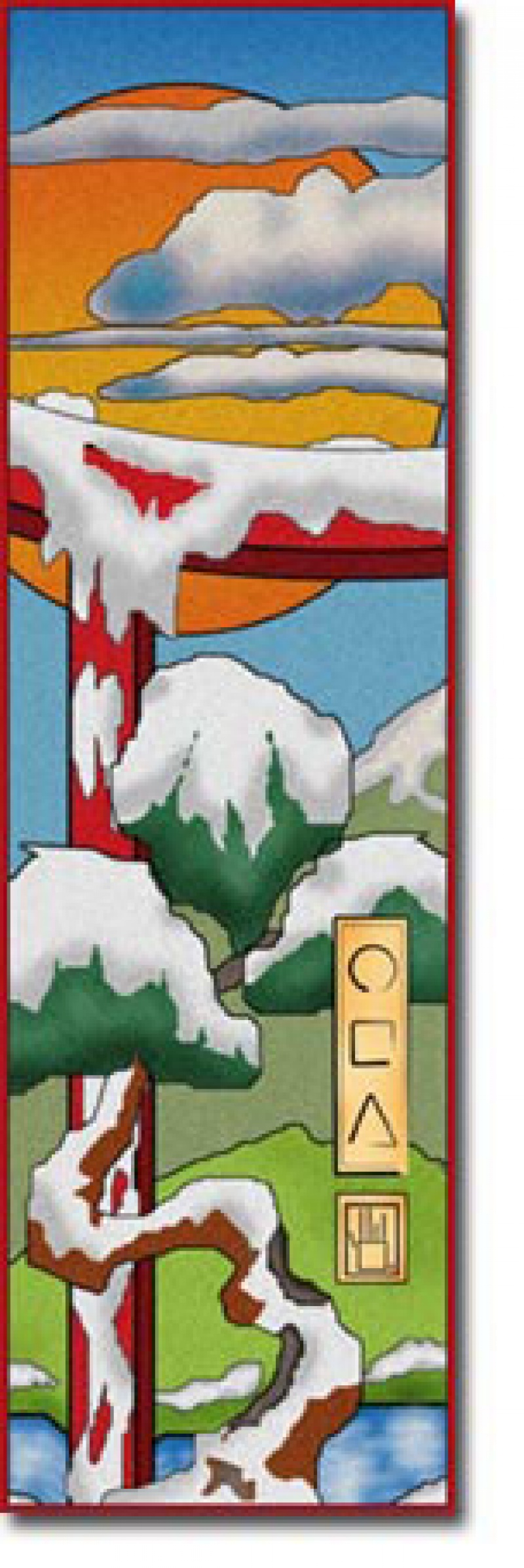On The Way: The Daily Zen Journal
The Wise Ones of Old
Lao tse (b. 571 B.C.)
The wise ones of old had subtle wisdom
And depth of understanding,
So profound that they could not be understood.
And because they could not be understood,
Perforce must they be so described:
Cautious, like crossing a wintry stream,
Irresolute, like one fearing danger all around,
Grave, like one acting as guest,
Self-effacing, like ice beginning to melt,
Genuine, like a piece of undressedwood,
Open-minded, like a valley,
And mixing freely, like murky water.
Who can find repose in a muddy world?
By lying still, it becomes clear.
Who can maintain his calm for long?
By activity, it comes back to life.
One who embraces this Tao
Guards against being over-full.
Because he guards against being over-full,
He is beyond wearing out and renewal.
Because the eternal principle of life, Tao, works silently and apparently without action in the way that spring comes round every year, because Tao does not claim credit for its individual acts and is content to be silent, it becomes the image for the Taoist sage.
The demeanor of the pure person
The pure ones of old slept without dreams, and wakened without worries. They ate with indifference to flavor and drew deep breaths. For true people draw breaths from their heels; the vulgar only from their throats.
The pure ones of old did not know what it was to love life or to hate death. They did not rejoice in birth, nor strive to put off dissolution. Unconcerned they came and unconcerned they went. That was all. They did not forget whence  it was they had sprung; neither did they seek to inquire their return thither. Cheerfully they accepted life, waiting patiently for their restoration (the end). This is what is called not to allow the mind to lead one astray from Tao, and not to supplement the natural by human means. Such a one may be called a pure or natural person.
it was they had sprung; neither did they seek to inquire their return thither. Cheerfully they accepted life, waiting patiently for their restoration (the end). This is what is called not to allow the mind to lead one astray from Tao, and not to supplement the natural by human means. Such a one may be called a pure or natural person.
Such people are free in mind and calm in demeanor. Sometimes disconsolate like autumn and sometimes warm like spring, their joys and sorrows are in direct touch with the four seasons, in harmony with all creation, and none know the limit thereof….
The pure ones of old appeared towering of stature and yet could not topple down. They behaved as though wanting in themselves, but without looking up to others. Naturally independent of mind, they were not severe. Living in unconstrained freedom, yet they did not try to show off.
They appeared to smile as if pleased and to move only in natural response to surroundings. Their serenity flowed from the store of goodness within. In social relationships, they kept to their inner character. Broadminded, they appeared great; towering, they seemed beyond control. Continuously abiding, they seemed like doors kept shut; absent-minded, they seemed to forget speech.
Pursuit of Knowledge
Without stepping outside one’s doors,
One can know what is happening in the world,
Without looking out of one’s windows,
One can see the Tao of Heaven.
The farther one pursues knowledge,
The less one knows.
Therefore the Sage knows without running about,
Understands without seeing,
Accomplishes without doing.
Lao tse (b. 571 B.C.)
Excerpted from The Wisdom of Laotse translated by Lin Yutang, 1948




To say too much about Taoism can interfere with another’s own direct experience of intuitive understanding. Having read this piece many times in the past, I see how often it takes multiple readings to reveal deeper insights.
There is the one level where we are reading as if we’re viewing a historical text written long ago reflecting the culture and times it was written in; another level is where we merge with the students who were listening to the discourse and hear as if we are their contemporaries.
With another step of understanding, we actually merge with the writing as if we can feel the writer/speaker and can experience the depth of their wisdom. In the piece above there is yet another possibility revealed. At first reading it seems to paint a picture of a person of Tao, an ideal, a way to recognize those who have dedicated their lives to pursuing spiritual development.
With a slight shift of awareness we can experience ourselves having already attained this way of experiencing the world. Rather than read it as something we are aiming for, read it from the perspective of having already attained natural mind; we can enter into this state and BE that wise one of now.
In other words, instead of living from an attitude of someday I’ll be that wise one of old, start living from the endpoint of having already finished your training. Live from that state and act from that place sharing that light of awareness.
Living in the Present Unfolding,
Elana, Scribe for Daily Zen